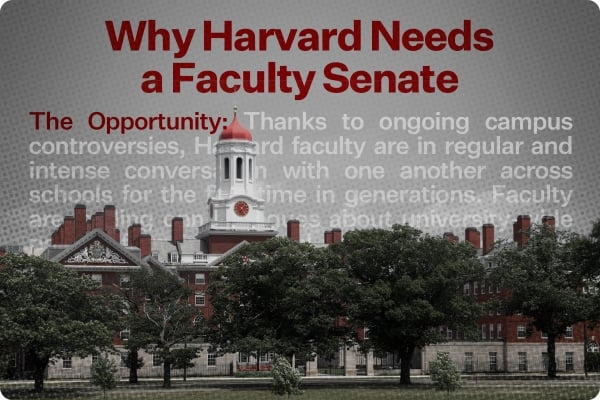Harvard University, one of the most prestigious institutions in the world, is known for its rigorous academics and distinguished faculty. However, one aspect that sets Harvard apart from other universities is the absence of a university-wide senate.
Most universities have a governing body that represents the interests of faculty, staff, and students. This body typically plays a key role in decision-making processes related to academic policies, budget allocations, and institutional priorities. At Harvard, however, each of the university’s schools operates independently, with its own governing structures and leadership.
Some professors at Harvard believe that the lack of a university-wide senate hinders effective communication and collaboration across the various schools. In recent years, there have been calls to establish a central governing body that would bring together representatives from each of Harvard’s schools to address common challenges and opportunities.
One proposal put forth by a group of Harvard professors suggests creating a university-wide senate that would serve as a forum for discussion and debate on issues of importance to the academic community. The senate would allow faculty members from different schools to voice their opinions and concerns, and work together to develop solutions that benefit the entire university.
Proponents of the university-wide senate argue that it would provide a unified voice for Harvard faculty and help to streamline decision-making processes. By bringing together representatives from across the university, the senate could facilitate collaboration and foster a sense of community among faculty members.
However, establishing a university-wide senate at Harvard would not be without challenges. Critics argue that Harvard’s decentralized structure is a key part of its identity and should not be changed. They also raise concerns about the potential for the senate to become too bureaucratic and slow-moving.
Despite these challenges, the debate over the need for a university-wide senate at Harvard continues. As the university looks to address complex challenges in higher education, such as rising tuition costs and increasing competition for research funding, the establishment of a central governing body may become increasingly relevant.
In the meantime, Harvard faculty members are encouraged to continue engaging in discussions and debates about the university’s governance structure. Whether or not a university-wide senate is established, the important thing is for faculty members to work together to ensure that Harvard remains at the forefront of academia and continues to uphold its commitment to excellence.



